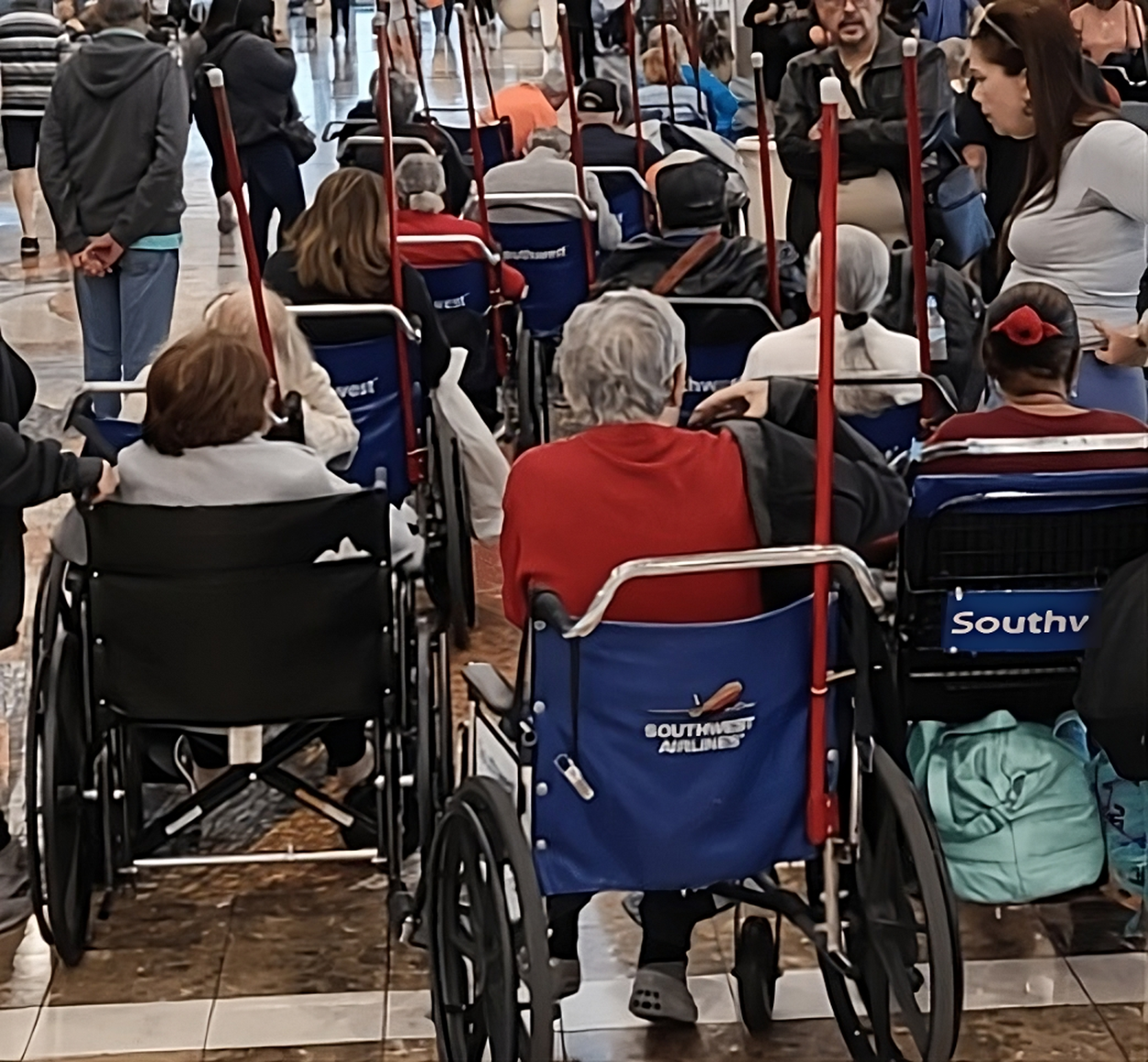
One simple change Southwest Airlines is working on – and plans to announce later this year – wold change their boarding process, and in so doing service to end the phenomenon of passengers faking disabilities to board early, end the practice of seat saving, and make it easier to identify unruly passengers on board.
That change is assigned seats, instead of the current free for all. And Southwest Airlines shared during their earnings calls that they’re looking into changes to how seating works with the specifics to be reveal later at their Investor Day.
In February I explained that the new cabin interiors they revealed gave us a clue for what to expect.
- Thinner seats, while saying they wouldn’t add seats to planes, means more space to use for extra legroom seating probably at the front of the aircraft.
- For these new premium extra legroom seats to make sense, Southwest would have to assign seats rather than making them first-come, first-served.
The airline says they don’t know exactly how a new offering plays out. Clearly there will either be assigned seats for new premium seating, or assigned seats throughout the aircraft. Regardless, assigned seats aren’t just a way to restrict premium seats to customers paying more for them. They are also a way to identify who is sitting in each seat. And that turns out to be useful when running a smooth operation, and dealing with problem passengers.
On every other airline, a passenger’s name and seat assignment is on the flight’s manifest for easy identification. Only Southwest Airline’s lacks this information.
- If there are more passengers on the plane than there are supposed to be, you don’t know who is supposed to be there and who isn’t.
- If a passenger in a specific seat is causing problems, you don’t immediately know who it is.
- If a problem passenger doesn’t identify themselves, you need to take everyone off and reboard them to know who’s still on the plane.
After David Dao was dragged off a United Airlines flight and bloodied in 2017, airlines frequently began takig everyone off of the plane rather than taking just one passenger off the plane when someone refused to simply get off when asked to do so. That way they wouldn’t have to have police come on and see matters escalate. United, in particular, became sensitive to having law enforcement on their aircraft for obvious reasons. The Dao story was a global phenomenon, and delayed then CEO Oscar Munoz becoming he airline’s chairman (and therefore likely delayed Scott Kirby from becoming CEO).
However it’s Southwest Airlines that can present the biggest challenge for law enforcement. FBI agents complain that Southwest Airlines is frustrating to deal with in unruly passenger situations on aircraft because passengers can’t easily be identified by their seat assignment.
Of course there are two other huge advantages seat assignments will bring,
- The end of seat saving. No more claiming 13 seats for your group or using a bag of donuts to claim a whole row of seats, and the ensuing conflict that comes from taking more space than your ticket allows.
Woman saving an entire row of plane seats behind her with donut bags.
byu/Hog_Fan inmildlyinfuriating - The end of Jetbridge Jesus flights where dozens of passengers board in wheelchairs, to get on first have their first pick of seats, but walk off just fine at the end of the flight themselves. This won’t just promote fairness, but will stop hogging wheelchairs and staff time pushing those chairs to make them more available for those that really need the assistance.
With one simple change – assigned seating – you’ll solve many of the problems that turn boarding a Southwest Airlines flight into an exercise in game theory.
Gary Leff
